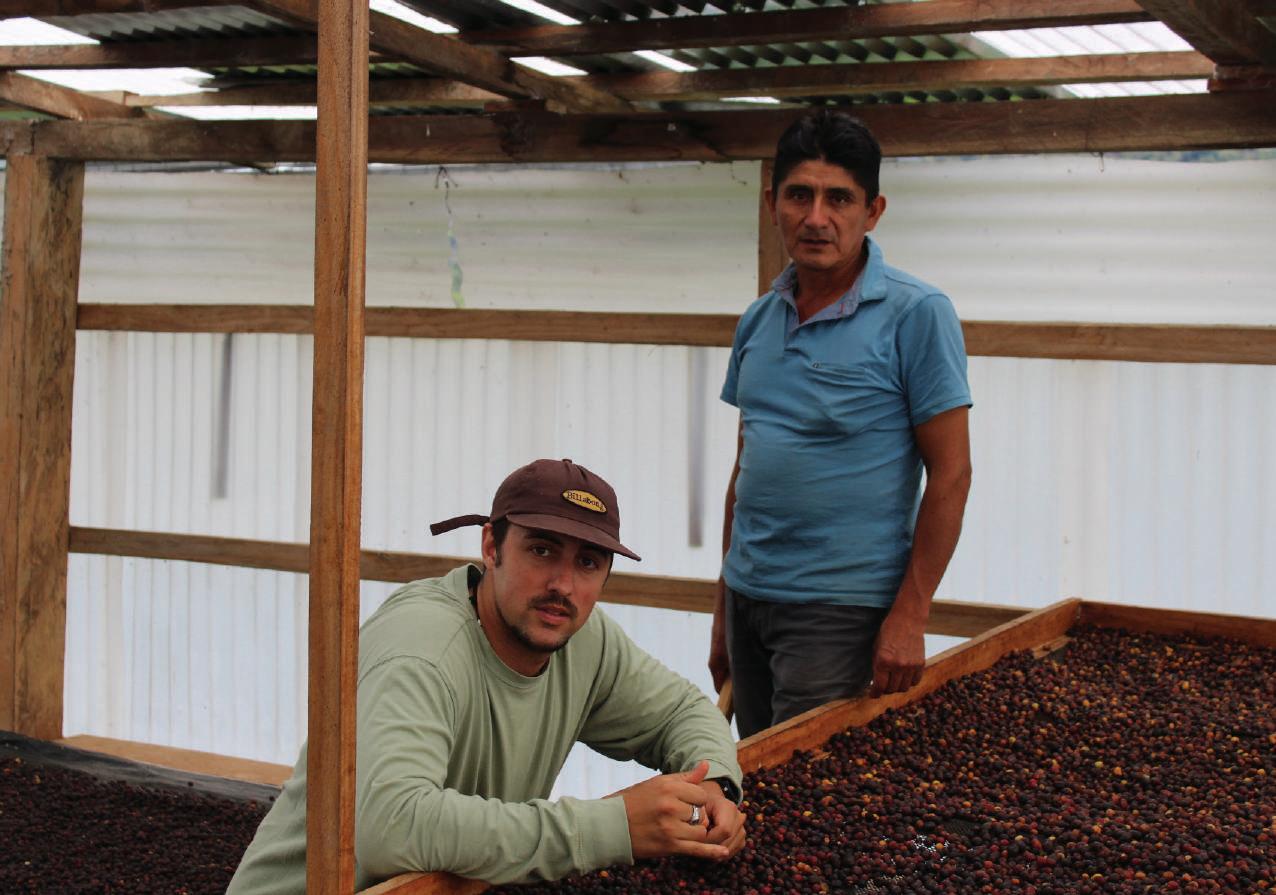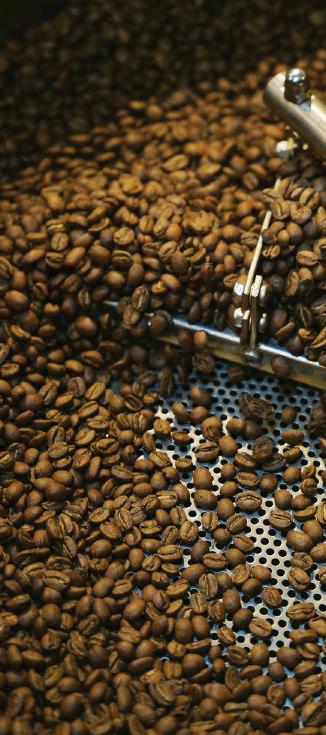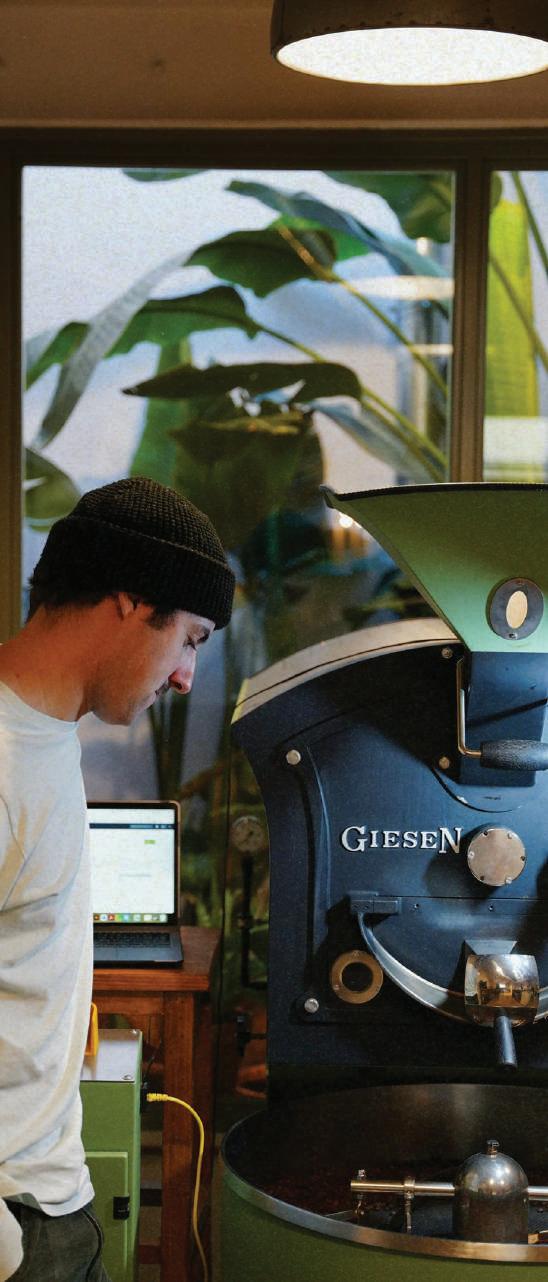
3 minute read
Barranco to Badalona with Ferran Torrell
From the busy streets of Barranco, a vibrant and cultural hub in Lima, to the serene shores of Badalona, a city next to Barcelona. The journey of Ferran Torrell and specialty coffee is a tale of passion, innovation, and a deep commitment to quality. Ferran’s adventure began in 2018 when he founded Caleta Dolsa, a name now synonymous in the Lima coffee scene, drawing in both avid brunch-goers and adrenaline-fueled surfers alike.
Ferran’s foray into the world of coffee was serendipitous. A surfer at heart, he traded the waves for coffee beans, plunging into the realm of coffee roasting. Back in 2018, the specialty coffee scene in Barranco was still in its early and premature stages. Ferran, alongside the cofounders of Caleta Dolsa, saw the untapped potential of Peruvian coffee. They were pioneers, setting a precedent in a market ripe for exploration. Their dedication paid off, forging strong bonds with coffee producers across Peru and laying a solid foundation for Caleta Dolsa.
Advertisement
The transition from Lima to Badalona marked a new chapter for Ferran. Since 2023, he’s been fully invested in Amauta, his new venture, while also introducing his favourite Peruvian coffees to Europe through Andean Coffee Collective. This new endeavour represents not just a business expansion but a cultural exchange, bringing the rich flavours of Peru to the European palate.
We asked Ferran about opening a roastery in Badalona, a city which, until Amauta’s arrival, had not fully embraced specialty coffee despite being one of Catalonia’s largest cities. Ferran shares his thoughts with us about the journey he’s been on so far.

MR: How has it been to open a roastery in Badalona, and what learnings have you taken from Caleta Dolsa?
FR: Opening a roaster in Badalona in 2023 has been an adventure and a full commitment. It marked the introduction of specialty coffee to one of the largest cities in Catalonia. The experiences and lessons from Caleta Dolsa are diverse, encompassing administrative, operational, human, and technical aspects.
We’ve learned immensely from every facet, really absorbing life lessons. In Peru, we’ve understood the essence of producing quality coffees and the extensive work behind it. Our experiences in the Lima roastery, especially the trial and error approach, have taught us to unlock the potential of our producers’ coffees.
With a team of over 12 baristas in Lima, we’ve delved deep into understanding all the variables that contribute to a good coffee, experimenting and collaborating closely with the roasting process to ensure our coffees reflect the hard work of our producing friends.
MR: With your green coffee venture, the Andean Collective, how receptive has the coffee scene in Barcelona been for Peruvian coffee?
FR: The coffee scene in Barcelona has not traditionally associated Peru with specialty or high specialty coffees. With Andean Collective, we’re challenging this paradigm by working with exceptional coffees, unique varieties, and distinctive profiles that redefine what is commonly understood as Peruvian coffee.
There’s a tendency in Europe to only recognise regional or Community Lot coffees from Peru, often lacking traceability and distinctive profiles. Andean Collective aims to assist small and medium-sized coffee growers in Peru, particularly those in the most interesting regions where the coffees have unique character and sensory profiles. These surprising Peruvian coffees often astonish people at the cupping tables.
MR: What are your favourite Peruvian coffees?
FR: My favourites include the high-elevation washed coffees with fermentations of no more than 72 hours.
The coffees from the Huabal and Tabaconas areas of Cajamarca, especially the Yellow Caturra from Huabal, are spectacular. The Bourbons from Cusco and the coffees from Puno are also remarkable. The Central Jungle offers very sweet and round coffees, perfect for daily espressos, either alone or with milk. Although I’ve found few natural coffees that surprise me, the ones that do stand out are due to excellent process management.
MR: What are your favourite coffees outside Peru?
FR: I’m particularly fond of Kenyan coffees for their sweetness, body, and juiciness, and the heirloom varietals from Ethiopia, known for their floral and delicate profiles. Additionally, the Pacamara variety from El Salvador is a personal favourite.
MR: Is there anything else you want to share?
FR: We are currently witnessing a new era for the production and distribution of excellent Peruvian coffees. This is a time of significant change and opportunity in the specialty coffee industry, and we’re excited to be a part of it. Thank you.
We thank Ferran for all his hard work pushing Peruvian coffee to new places not just in Europe but also sharing the best of Peru with many Peruvians.







